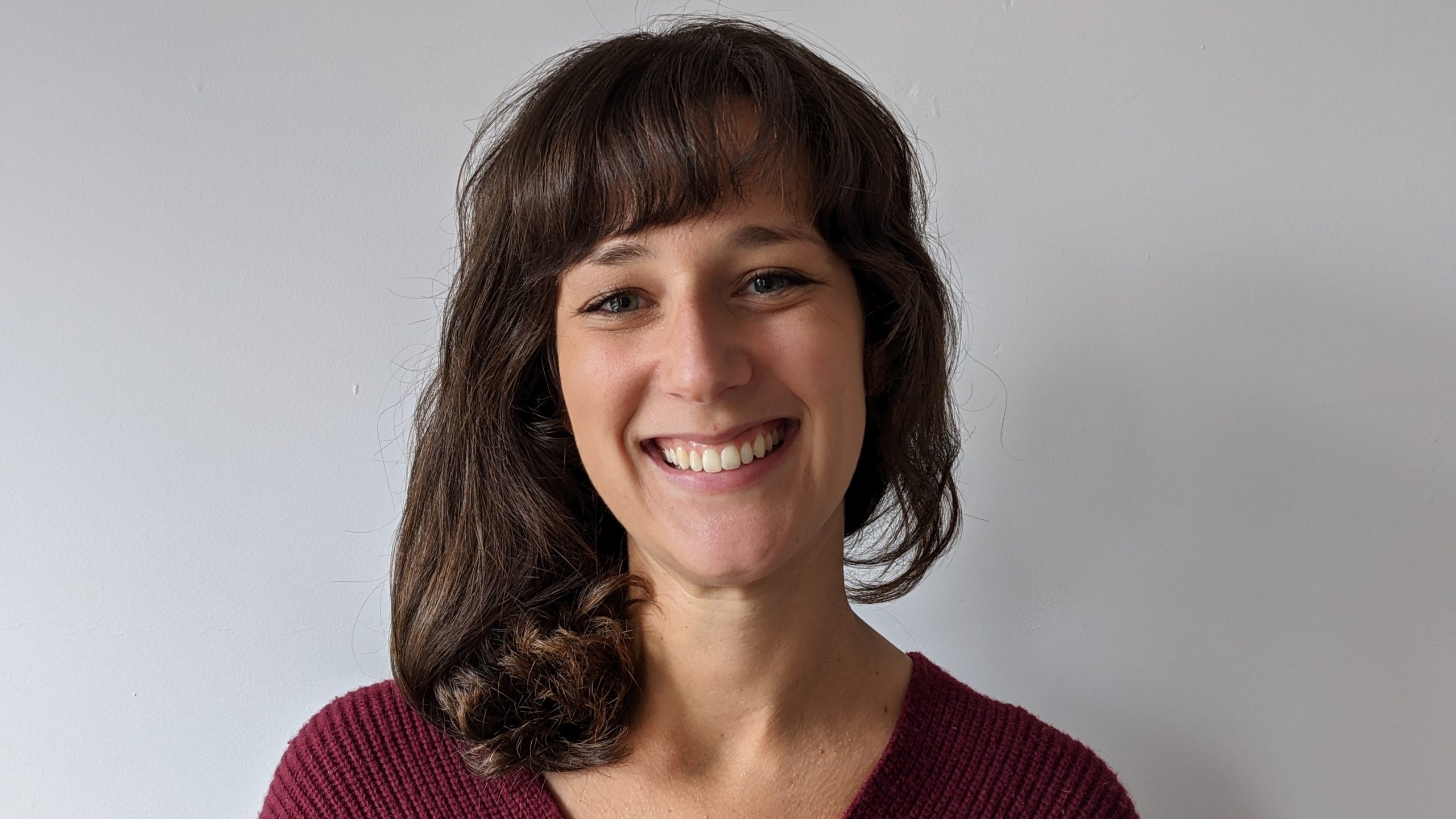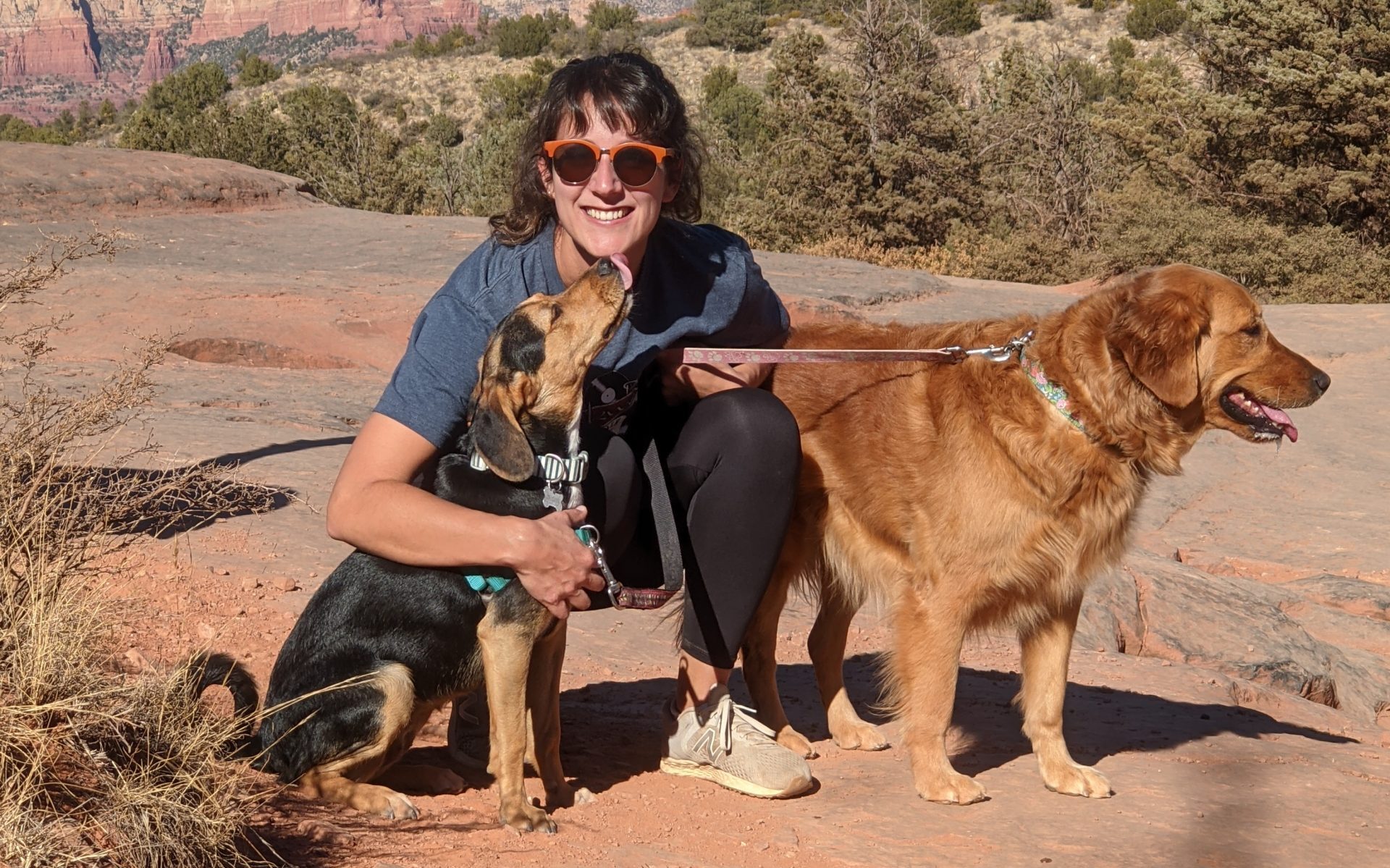Researcher Spotlight – Rebecca Asser

2020-21 Global Change Fellow
Master’s Student, Department of Landscape Architecture and Environmental Planning
Advisor: Prof. Andy Fox
Every year the Southeast Climate Adaptation Science Center funds a multi-disciplinary cohort of Global Change Fellows representing colleges across NC State University. Here are some highlights about 2020-21 Fellow, Rebecca Asser, and the applied research she’s conducting.
About You
I’d like to first acknowledge that I am residing on the stolen lands of the Skahruhreh/Tuscarora, Lumbee, and Coharie people. It is because of this unjust history that we reside and study in present-day Raleigh, NC.
What do you study?
I am studying in a very hands-on way, on how landscape architects can better co-produce and work in collaboration with the Lumbee Tribal Council and members. I feel very fortunate to have the opportunity to create relationships with tribal members and share the design and research process with them. In turn, I have learned about the landscape’s memory and emotional value. My research is driven by weighing both qualitative, quantitative, and Traditional Ecological Knowledge as equals. Together, we are manifesting the possibilities that lie within the historically and ecologically rich site of Maxton Pond. Both Hurricane Matthew and Florence have greatly impacted the ecosystem of the area. It is my hope that by taking this holistic view of a site, it creates a very dynamic design solution in response to the growing intensity of storms; and therefore, results in creating a place that is conserved, restored, and loved by the Lumbee for the next seven generations.
What (or who) influenced you to go into this field of study?
I did not know what landscape architecture was until I was about 25. I did some copy editing for a landscape architecture firm in New York while living there, and realized it combined all of my passions seamlessly; people, the environment, advocacy, and the arts. As I’ve been learning more about the profession, it has strengthened my interests in highlighting social and environmental justice issues and using the design process to not only repair relationships but also help communities plan for the future as our global climate continues to change. I was motivated to work with the Lumbee after hearing about the work of the Coastal Dynamics Design Lab in Robeson County and became passionate about working with the Tribal Council and Lumbee tribal members after reading Lumbee in the Jim Crow South by Dr. Malinda Maynor Lowery and research by Dr. Ryan Emanuel.
About Your Research

Who will benefit from your research?
Most directly, I hope that the research will benefit the Lumbee Tribal Council and its members in putting forth a plan to restore and conserve Maxton Pond to its best ecological state, and create a place for the celebration of their history. It is absolutely necessary that the research is grounded in grant-focused language in order to create a sustainable path forward. Secondly, I hope that this research showcases the importance of co-production with communities and respect for Indigenous sovereignty in academic research.
How would you describe your research to a 3rd grader?
I love this question because I used to be a second grade teacher. Landscape architects are designers who work with communities to create outdoor spaces that people will love and return to. My research is working with the Lumbee Tribe, a people who have lived in North Carolina for many centuries. They own a pond called Maxton Pond where a historic battle took place; the Lumbee took a stand against the racist KKK during the beginnings of the Civil Rights Movement in 1958. It also was a pond where the American Alligator used to live. There have been a lot of hurricanes in the area where this pond is, and it is in need of some attention to help restore it to its best environment. We’re working together on how to make this the best place possible for the Lumbee to come and enjoy the pond and celebrate their history.
About Your Global Change Fellow Experience
What has been the most rewarding part of being a SE CASC Global Change Fellow?
The most rewarding part of being a SE CASC Global Change Fellow is the connections formed. Despite working in a COVID setting, it has been amazing to collaborate with Tribal members, as well as the other Fellows. I’ve learned so much about history and ethnobotany. I come from a sociology background, so it’s interesting to hear about research focuses ranging from stream restoration to migration patterns of the American eel.
What advice would you give to a student who is interested in getting involved in your field?
Landscape architecture is extremely varied, providing endless possibilities to ideate design interventions on many scales, but also opportunities to work with people and communities. If you like collaboration, creative problem solving, as well as both historic and ecological research, there probably is a place for you in landscape architecture.
